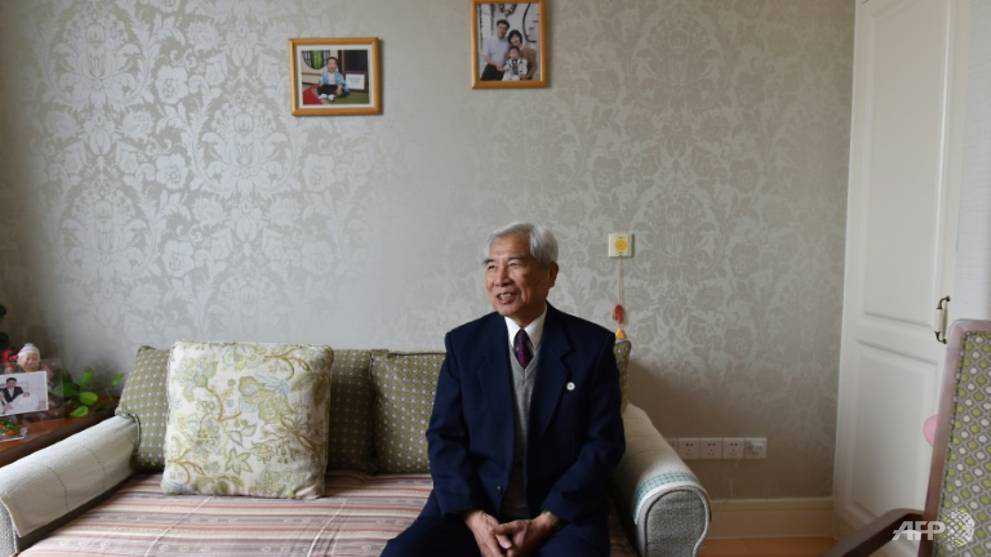China's ageing elite live golden years in style
22 January, 2019

At a gated community for Chinese senior citizens, retired military personnel, film-makers and top university professors settle into a new routine: ballet lessons, weightlifting and catered dining.
As China's population ages rapidly and the one-child policy left parents with only a single child to help them in their old age, the upper crust of Chinese society are spending the last years of their lives in luxury.
A grand piano backlit by floor-to-ceiling windows stands in the Yanyuan community's clubhouse living room. Brightly coloured artworks commissioned from Israeli artist David Gerstein adorn public spaces.
"This is our home now," said Li Ying, a 71-year-old resident who spent more than 30 years in the military.
"Special circumstances notwithstanding, we are prepared to live here until the end."
Though high-end institutions like Yanyuan, which boasts an on-site hospital and on-call staff, are still few in China, they are part of a growing industry as the country races to develop enough elderly care support for its exploding population of senior citizens.
By 2050, one in three people in China, or 487 million people, will be over the age of 60 - more than the population of the United States - according to the official Xinhua news agency.
In the past, parents could count on their children for care in their twilight years under Chinese traditions of filial piety.
AGEING CRISIS
But as China reckons with its one-child policy, which was aimed at curbing population growth, Chinese couples are now burdened with raising their own children while supporting both sets of parents - without the help of siblings.
"The idea that children should take care of their ageing parents is an old logic spanning thousands of years," explained Li. "As society develops, this is changing."
To tackle the country's looming ageing crisis, the Chinese government is trialing a number of policies, including preferential tax policies for elderly care service providers.
The push to grow China's elderly care capacity has encouraged more private companies, from real estate developers to insurance firms, to seize on business opportunities in the industry, such as nursing homes where residents enjoy five-star accommodations and professional medical support.
At Yanyuan, which is run by insurance giant Taikang, residents can either buy into the company's two million yuan (US$290,000) pension plan or make a down payment of one to two million yuan on top of monthly living expenses of at least 6,000 yuan, not including the food budget.
Publicly run nursing homes, on the other hand, can cost less than US$1,000 a month or offer subsidies to residents but are often viewed as a last resort for China's more destitute senior citizens.
"Whether or not China's elderly care industry can satisfy the needs of (China's) rapidly ageing populace depends on who is paying for it," says Chen Youhua, a professor at Nanjing University who has studied China's elderly care industry.
If it's paid for privately, there could be an overabundance of facilities and beds, but "if it's the government or society who pays... then the current elderly care services industry cannot satisfy such needs", he added.
NOT ALONE
Some industry experts are wary that private firms will focus on providing lavish retirement villages for long-term residency, rather than creating last-mile nursing homes for those who cannot take care of themselves
Vivian Lou, an associate professor at the University of Hong Kong, who studies long-term care suggested healthy 60-year olds could enter such villages for seniors, and remain there for 20 years, during which time no one else could take their spot.
"This then becomes a housing solution," she explained.
Still, for residents at Yanyuan, socialising with peers - and simply not being alone - is one of the greatest benefits of staying in the retirement community.
In the past, the entire family lived together, "joyous and harmonious," said Ge Ming, who heads operations at Yanyuan. "But over the course of urbanisation, the (family) structure has changed".
Young workers from all over China migrate from rural areas in search of higher wages and work opportunities -- they are no longer home to care for their parents or grandparents.
For China's ageing elite, many of whom already live in the major cities, their children may be living overseas or simply too busy building their own high-powered careers to look after relatives.
"I can't rely on them," said Zhu Mingyi, an 82-year-old retired professor, who used to teach languages.
His daughter lives in Beijing working for an international broadcaster, while his son is in Japan.
He added: "They have their own careers and family. They don't have the time, money, or energy to take care of you."
TAG(s):
